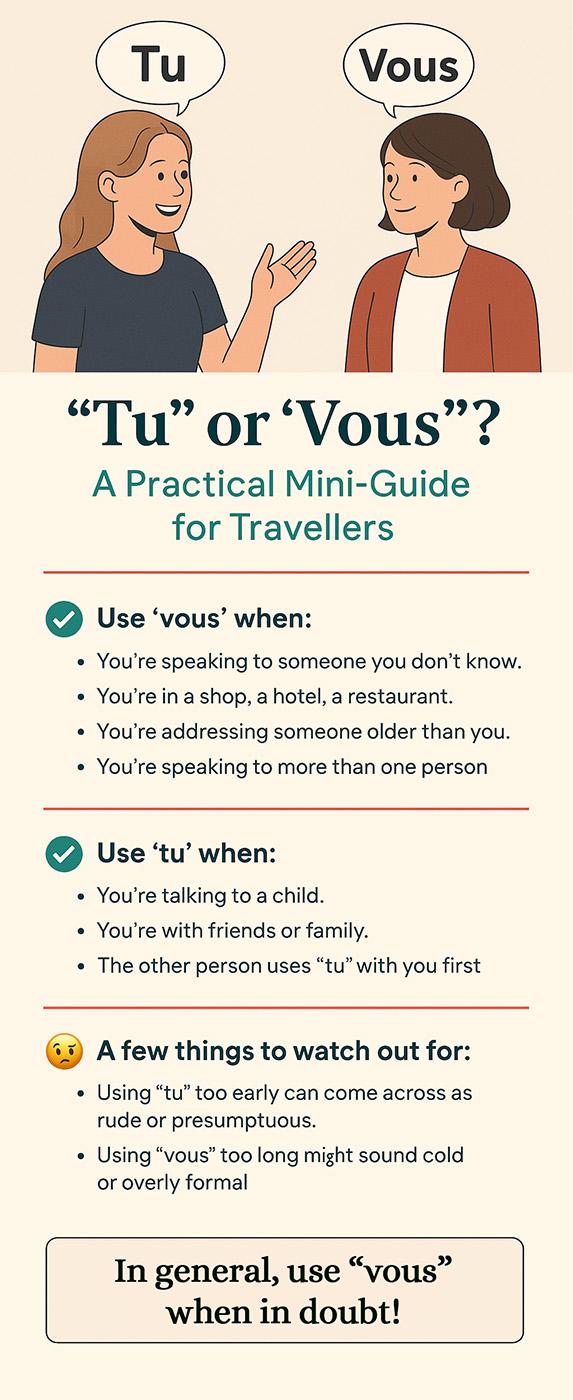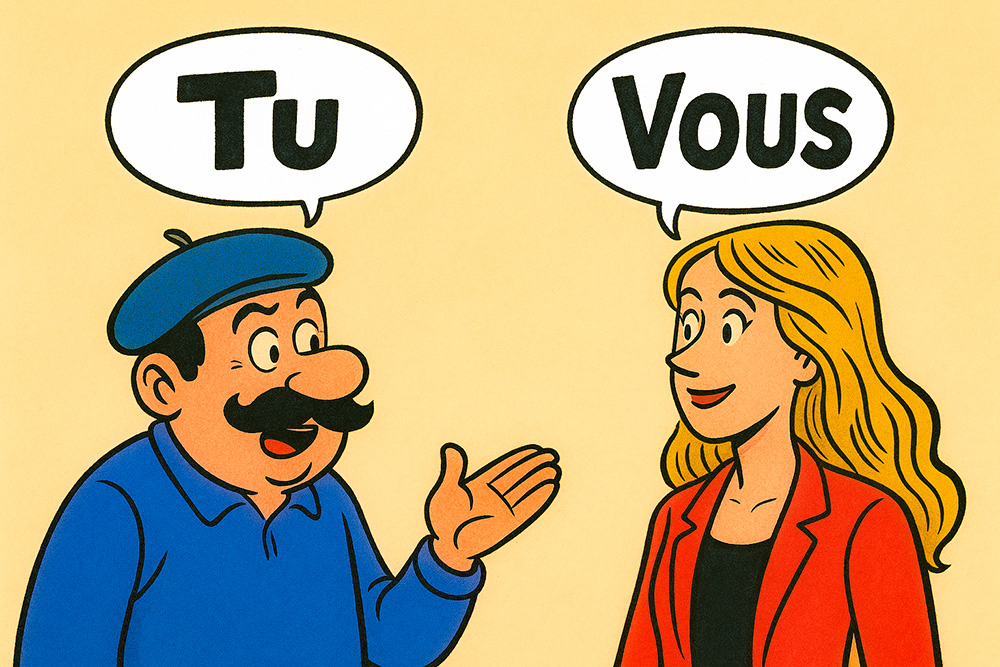Bonjour!
Let me tell you about one of my students (we'll call her Jenny!).
She started learning French with me in February.
A total beginner, but she’s in love with France — the language, the villages, the pastries, everything.
Last week, during one of our online lessons, she paused mid-sentence, looked puzzled, and asked:
“What’s the difference between tu and vous? I keep hearing both, and I never know which one to use.”
A perfectly normal question — and a classic one for English speakers.
Because in English, there’s just you.
Simple. Elegant. Democratic.
But in French? Oh no. You’ve got choices.
And those choices say a lot.
🇫🇷 “Tu” or “Vous”? A Practical Mini-Guide for Travellers
Let’s start with the basics:
- Vous is the polite, formal, or respectful form of “you”.
- Tu is the casual, friendly, or intimate form.
But it’s not just about grammar — it’s about relationships, social context, even intuition.
Here’s how it usually plays out:
✅ Use “vous” when:
- You’re speaking to someone you don’t know.
- You’re in a shop, a hotel, a restaurant.
- You’re addressing someone older than you.
- You’re speaking to more than one person.
- You’re at the bakery and asking for your third croissant (again).
It’s a safe bet — and starting with “vous” shows you’re respectful. Even if your accent gives you away, people will notice the effort.
✅ Use “tu” when:
- You’re talking to a child.
- You’re with friends or family.
- The other person uses “tu” with you first.
- A friendly local says: “On peut se tutoyer ?” (Can we use tu?)
This last one is a small but beautiful moment. It means they’re opening the door to a more relaxed, human connection.
😬 A few things to watch out for:
- Using “tu” too early can come across as rude or presumptuous.
- Using “vous” too long might sound cold or overly formal — especially with someone who’s trying to connect.
- Switching from “vous” to “tu” can mark a new stage in a relationship — like moving from colleagues to friends. Yes, even this is a thing in France!
So, what did I tell Jenny?
👉 “When in doubt, go with vous. It’s the safer choice.”
And if someone suggests using “tu”, it usually comes with a smile.




